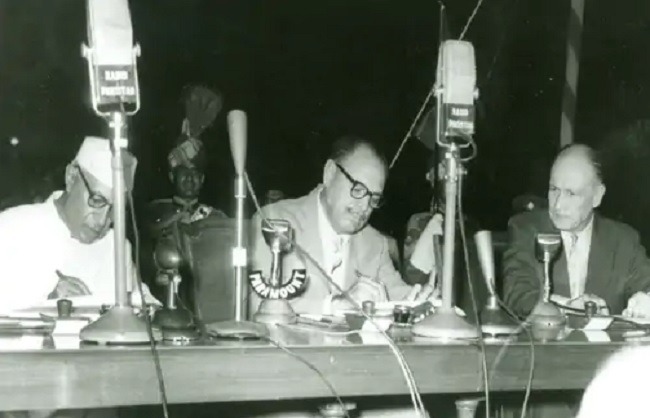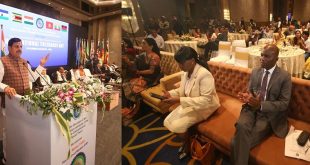The date of 19 September is recorded in the history of the country and the world for many important reasons. This date is considered important for the Indus River Water Treaty. In fact, when India became independent in 1947, a new country named Pakistan was formed. Like Kashmir and other disputes between the two countries, another dispute was regarding the water of the Indus River.
The area of the Indus river is spread over an area of about 11.2 lakh km. This area is in Pakistan (47 percent), India (39 percent), China (eight percent) and Afghanistan (six percent). About 30 crore people live in the areas around the Indus river. During the partition, the Indus river valley and its canals were also divided, but Pakistan was completely dependent on India for its share of water. For the supply of water to Pakistan, it was decided that a certain share of water would be given to Pakistan till 31 March 1948. On 1 April 1948, India stopped the water of the canals. This worsened the situation in Pakistan.
Several rounds of meetings were held between the two countries and finally the Indus River Water Treaty was signed on 19 September 1960. The then Prime Minister of India Jawaharlal Nehru and the then President of Pakistan Mohammad Ayub Khan signed the agreement. It is also called the Indus Water Treaty.
Under the agreement, the rivers of the Indus river basin were divided into eastern and western rivers. The three rivers of the eastern region – Ravi, Beas and Sutlej were given to India. There was an agreement to give some water of the rivers of the western region – Indus, Chenab and Jhelum to Pakistan as well. India also has the right to make limited use of the water of the rivers of Pakistan's part, such as – generating electricity, irrigation etc.
important events
1891: William Shakespeare's famous play The Merchant of Venice was staged for the first time in Manchester.
1893: Swami Vivekananda gave a historic speech at the World Parliament of Religions in Chicago (America).
1893: All women in New Zealand were given the right to vote under the Electoral Act 1893.
1955: Argentina's army and navy revolted and removed President Juan Perón from office.
1957: America conducted its first underground nuclear test in the Nevada desert.
1962: China attacked India's northern border.
1982: Scott Fahlman became the first person to use online messaging.
1983: British colony Caribbean island of Saint Kitts and Nevis becomes independent.
1988: Israel successfully launched test satellite Horizon-I.
1996: Alija Izetbegovic becomes the first president of post-war Bosnia.
1996: The government of Guatemala and leftist rebels signed a peace treaty to end a long-running war.
2000: Karnam Malleswari won the bronze medal in weightlifting at the Olympics.
2002: Israeli troops besiege Palestinian leader Yasser Arafat in the West Bank.
2006: Emergency imposed in Thailand amid government coup.
2006: Japan approves economic sanctions against North Korea.
2007: In view of the possibility of cyber war, the US Air Force formed a temporary command.
2014: Apple iPhone 6 goes on sale.
Birth
1867: Shripad Damodar Satvalekar, a scholar who made significant contributions to Indian cultural upliftment in the twentieth century.
1886: Former Governor of Assam and Odisha.
1927: Famous Hindi poet Kunwar Narayan.
1965: Sunita Williams, the second woman of Indian origin to go to space through NASA.
1977: Indian cricketer Akash Chopra.
1979: Indian archer Satyadev Prasad.
demise
1936: Vishnu Narayan Bhatkhande, scholar of Hindustani classical music.
1965: Former Chief Minister of Gujarat Balwantrai Mehta.
2013: Sumitra Nandan Pant's adopted daughter and famous writer Saraswati Prasad.
 look news india
look news india

